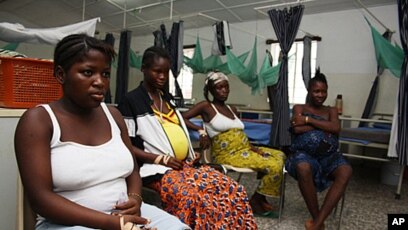In the rural village of Njagbahun, Sierra Leone, a simple bench and a makeshift nurse’s station have transformed an abandoned building into a temporary clinic, offering free family planning services to underserved communities. Operated by Marie Stopes International (MSI), the clinic provides contraception and post-abortion care to women in need.
Among them is 25-year-old Mariama Soriba, who stepped away from the local market to receive a birth control implant. “I’ve come for the family planning service so I can space out my children,” she said.
As lawmakers debate the Safe Motherhood Bill, which seeks to decriminalize abortion and expand reproductive healthcare, the issue has sparked national controversy. Government officials argue that the bill is essential to reducing maternal deaths, particularly from unsafe, botched abortions.
Fatou Esther Jusu, now 21, knows this reality firsthand. At 16, fearing family judgment, she attempted to end an unplanned pregnancy by taking misoprostol, a drug commonly used for abortion. After an initial failure, a second attempt led to a miscarriage. She considers herself fortunate—one of her friends died after using an expired version of the medication.
Sierra Leone has one of the highest teenage pregnancy rates globally, with over 20% of girls aged 15 to 19 becoming pregnant, according to the U.N. Population Fund. Jusu, now a nursing student, has become an advocate for reproductive health, determined to prevent others from experiencing similar hardships.
If passed, the Safe Motherhood Bill would make Sierra Leone the second West African country to decriminalize abortion. Health workers argue this change could save lives by reducing preventable maternal deaths. An estimated 90,000 abortions occur annually in the country, where unsafe procedures contribute to around 10% of maternal deaths.
President Julius Maada Bio introduced the bill following the U.S. Supreme Court’s 2022 decision to overturn Roe v. Wade. Initially, the legislation proposed allowing abortions up to 14 weeks. However, strong opposition from religious groups led to revisions, restricting abortion access to cases of life-threatening conditions, fatal fetal abnormalities, rape, or incest.
Despite the amendments, the debate rages on, and the bill’s fate remains uncertain as parliament prepares for a vote in the coming weeks. Meanwhile, clinics like MSI continue to provide crucial post-abortion care, treating women and girls suffering from complications due to unsafe terminations.
As nurse Hawanatu Samura noted, many patients arrive with severe injuries from unsterilized instruments, leading to life-threatening hemorrhages—especially among young girls. “If patients want an abortion, you cannot stop them,” she said. The challenge, healthcare workers argue, is ensuring they can do so safely.





